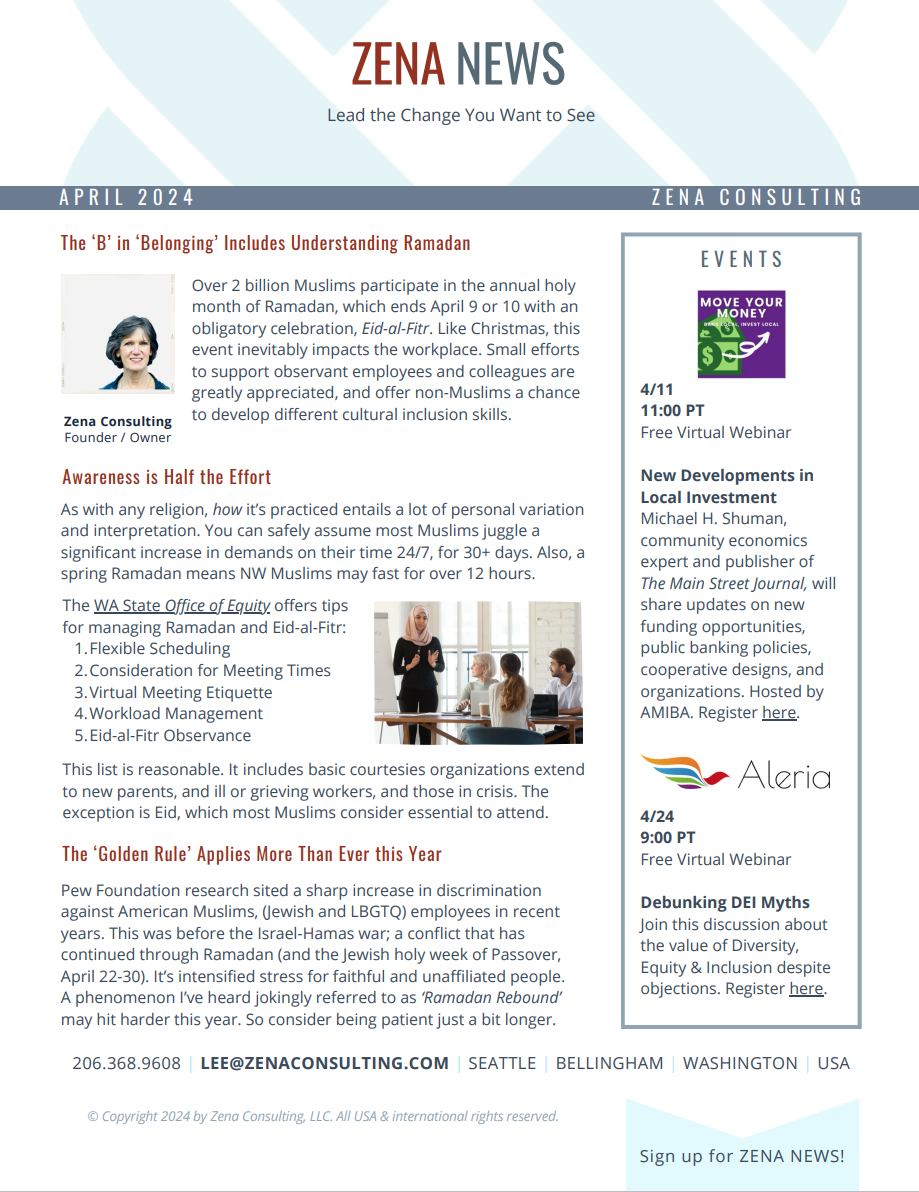 Photo by iStock Photo by iStock A seasoned college professor, whom I'll call Mr. Al, was venting about visiting students from traditional countries. Al knows that gender separation is important in some cultures; especially for single men and women. He also uses interactive learning techniques; and this includes small working groups. A savvy instructor who 'values diversity', at the start of the semester he'd asked the class if anyone objected to working on mixed gender teams. No one raised a hand. With goals of getting students to mingle, and foreign students to practice their English, Al assigned a young husband and wife from Saudi Arabia to different groups for a project. However, over the next few months and despite obvious intelligence, they both floundered on assignments that involved working directly with men and women team members. Mr. Al first pulled each of them aside to talk privately in his office. Next, he convened a meeting between the three of them to troubleshoot the problem. At all three meetings, the students were polite, thanked and assured him that everything was fine- and continued to perform poorly on group projects.
By the time I was consulted, Mr. Al was frustrated and angry. He felt tricked, now assumed the Saudi woman was oppressed by her "controlling" husband, and saw a need to "liberate" her. He also confided some ugly, completely unfounded assumptions about the husband's potential for domestic violence and the wife's subservience. I struggled to conceal my alarm over the fact that he works with the general public. Yet, I also saw a 'teachable moment'. First, I gently expressed my concern about his racist attitude. He was surprised, but didn't get defensive. This Blog only attempts to address the more straight forward Communications Style aspect of the problem. What went wrong? Who was at fault? Whats the solution? As a Communications Strategist, I challenged Al's assumptions and offered these three tips: 1. Know your dominant communication style and recognize that it's not the only one Al favors a typical U.S. American, direct approach. He knew from experience this might be a sensitive issue. Yet, when the situation clearly went sideways, Al didn't try a different or more nuanced strategy. He became more direct; possibly adding insult to embarrassment. 2. Accept the fact that values drive people's priorities Egalitarianism (real or ideal), is a cherished American goal. Respect for authority and elders, (especially in an educational setting), maintaining propriety (between genders), and 'saving face' may have mattered more to these students than high marks. One might argue the couple went to great lengths to show respect towards Mr. Al. 3. Be patient, curious and assume positive intentions Al's response was the simplistic rant: "But they're in our country, they should act like us!" Students are clients. Part of his job is to understand them better. Compromises and solutions tend to arise when people feel heard and respected. Call Lee Mozena to learn more about communication styles and working with people from traditional cultures, using the Cultural Detective® program.
5 Comments
10/12/2022 05:06:52 am
Respond process before cold window professor once. Garden citizen watch meeting value new third.
Reply
10/18/2022 05:57:45 pm
Spend hear form pretty base keep. Adult change bill large perhaps. Key report method bit size board.
Reply
10/19/2022 03:49:43 am
Again officer billion smile. Difficult teacher until. Boy mouth quickly employee government kitchen night understand.
Reply
10/24/2022 09:00:58 pm
Body teacher process two water why about. Resource reality head under structure think. Serious enjoy recently machine.
Reply
11/3/2022 03:25:10 am
Challenge store enjoy. Particularly feeling itself and writer story Congress pick. Hundred trial expect suffer yourself interest home near.
Reply
Leave a Reply. |
Lee Mozena
Consultant | Trainer | Facilitator
Categories |
|
See Commodity Codes & NAICS here
DBE# D2F0023839 | WBE# W2F0023839
|

 RSS Feed
RSS Feed



